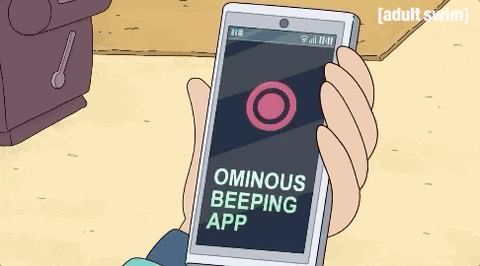How To Write SOPs (4-Steps)
February 24, 2021
NEW MARKET... KINDA
LinkedIn is taking on a new gig
The Microsoft-owned networking app is doubling down on what works with a marketplace for white-collar gig workers. App developers, consultants, and content creators included. And they’ve named it, uh, Marketplace.
So, the name needs some work. But the new feature is slated to replace the app’s current freelance offering (ProFinder) this fall. And in a piping hot gig economy, no less!

By December, 42M Americans are projected to be working gigs instead of full-time jobs, per Deloitte. AKA triple what it was in 2017.
Couple the rising demand with LinkedIn’s massive network (roughly 740M professionals). And Marketplace is about to take gig-work by storm.
Last year, freelancer sites Fiverr and Upwork brought home a combined $550M in revenue by taking a cut of each landed job (usually about 20%). Meanwhile, LinkedIn earned $8.8B, thanks to memberships and job ads. Not a cut of each job.
So, bets are good that we'll see freelancers flocking to Marketplace when it opens. (Meaning, more memberships, more job ads, and a lot more money heading Microsoft’s way.)
SPEAKING OF GIGS
Getting freelancers to buy into your company goals
You don't just throw your full-time employees into their role. Instead, you probably spend the first few months onboarding your new hires until they're fully aligned with your company goals and values. And then, you start them on projects.
But the freelancers don't get the same leisure. Instead, they're typically thrown into a project on Day 1 and told to sink or swim. They know little to nothing about your company. And the results can be a total disaster.

Even if everything goes fine, chances are good that your freelancer still isn't all-in on what your company is doing. That's because there's a few things they need from you, like:
- Clearly define expectations. Such as, what the project entails, when it’s due, why it matters to your business, and what else might hit the freelancer’s plate after it’s done.
- Create SOPs for them. Meaning, document the work they're doing for you. That way, it's always done the right way and up to your company standards.
- Give them enough work. Otherwise, they'll have to find projects elsewhere. And if they spend half their time looking for other gigs, they’ll never fully buy into your business.
- Give full transparency into the business, just like you would a full-time employee. But don't forget to have them sign an NDA.
- Treat them like an extension of your team (because that’s what they are). Meaning, help your freelancers level-up their skills and be empathetic to their experience.
👉 See all 12 tips for getting freelancer buy-in.
SUPER APP
PayPal is building one, big, (h)appy family

PayPal CEO Dan Schulman claims consumers only really want “8 to 10 apps.” And while we're not convinced, he's dead-set on creating the first fintech super app. AKA all your money-related apps, rolled up into one. Plus, a few more benefits like:
- Money management AI that helps you budget and invest
- Personalized deals based from places you already shop
But they already have some pretty steep competition. Namely:
- Square, who is already doing almost the exact same thing (but mostly focusing on small businesses)
- Big tech like Apple and Google, who already have their wallet apps built into their devices
- Shopping apps like Amazon that saves card information and history, so all you have to do is click to pay
- Traditional banks and credit unions (AKA where 95% of people hold their money
That's not to say that a super app can't be done. But it's going to take a lot more than a few pennies saved to get people to delete basically all their apps.
👉 Learn more about PayPal's super app.
THE REAL DEAL
The easiest way to write your SOPs
Ironically enough, there’s no official SOP for writing standard operating procedures. And a lot of the time, small business leaders overcomplicate how they go about it.
But at Trainual, we like to keep things as simple as possible. So, we’ve trademarked our very own 4-step process for SOP writing that anyone (and we mean anyone) can put to use.
We’ve dubbed it: “Do it. Document it. Delegate it!” And in less than 5 minutes, here's how it works:
https://youtu.be/HQmOowsNFS4
👉 Plus, get a full breakdown of each step (complete with checkpoints).
TL:DR
Other news you'll want to know
- Toast, the Boston-based leader in restaurant hardware and software, was getting burned early in the pandemic. But with a $20B valuation, they're now buttering up to go public.
- Pretty sure we've seen this episode before, but CEOs of Facebook, Twitter, and Google are heading to DC this March to talk misinformation on their sites.
- Plus, speaking of Mark’s company. An ex-Facebook employee warned that the company uses "deeply wrong" ad metrics to boost revenue.
- A quick follow-up on GameStop: What their stock price is at now (basically rock bottom)? Plus, will someone be held responsible for the short?
- So, the club is getting crowded. Clubhouse just hit 8M downloads (up roughly 130% since February 1). But the invite-only social app still has no way to generate revenue.




